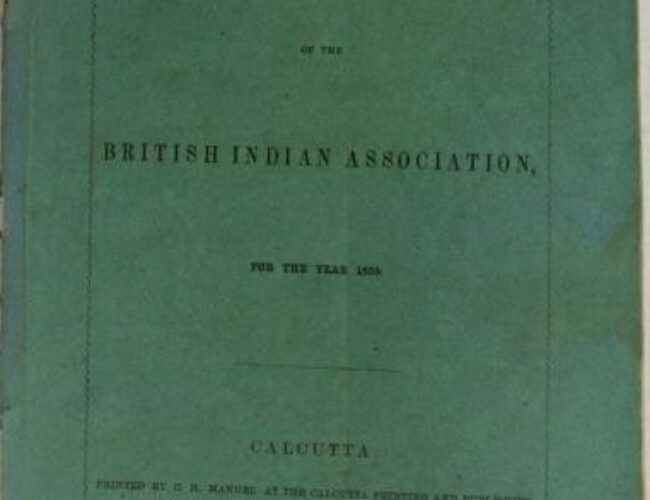The British Indian Association, founded in 1851, was one of the earliest political associations of Indian colonial subjects. The archive is an invaluable research resource on the early colonial period in India and the proto-history of the Indian freedom movement. However, poor preservation put the material at risk.

The British Indian Association, Kolkata, was one of the earliest and most important platforms from which Indians engaged with the British in India. Its archives hold records and early newspapers, which are an invaluable source for the study of colonial relations in India from mid-19th to early 20th century, and the prehistory of the Indian freedom movement. The material includes correspondence, memoranda, minutes, reports submitted to various bodies and legal documents, along with the runs of Hindoo Patriot, The Bengalee and The Englishman.
The material is at critical risk, as virtually no steps had been taken for its conservation. Large parts of it may soon become unusable, as the paper becomes very brittle. Digitisation was the only feasible option for ensuring the survival of these invaluable documents.
The project digitised a great number of materials, amounting to 66,882 images. Priority was given to newspapers not available as open online archives, which included copies of Hindoo Patriot and The Englishman dated 1869-1929. The staff at the British Indian Association were trained in preservation practices and basic conservation. The project raised awareness of the importance of the collection, as well as the importance of private collections in the region.
